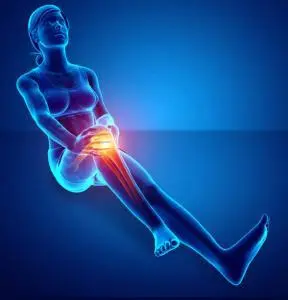
25 May Total Knee Replacement Surgery Process
It is a surgical procedure performed to relieve complaints such as pain, stiffness and limitation of movement resulting from knee joint problems. Total knee replacement surgeryIt involves placing a prosthetic implant into the knee joint and is usually applied to people whose quality of life has been reduced due to a worn, damaged or degenerative knee joint.
The process consists of several stages. First, the patient's physical condition and knee joint problem are evaluated. The knee joint is examined using x-rays and other imaging methods and surgical planning is made. Before the operation, the patient is usually referred to the laboratory for blood tests and other medical evaluations.
When the day of the procedure comes, the patient is put to sleep under general anesthesia or spinal anesthesia is applied. The surgeon makes an incision to access the knee joint and removes damaged tissue. Next, the bone surfaces are prepared and an appropriately sized prosthetic implant is placed. The prosthesis is usually made of metal and plastic and functions similarly to a natural knee joint.
The patient stays in the hospital for several days and the pain management and rehabilitation process begins. Physiotherapists help speed up the healing process of the knee by showing the patient movement exercises and strengthening activities. The patient may use crutches or a walker for a certain period of time to stabilize the prosthesis and heal the wound.
Total knee replacement surgery, The success rate is generally high, and in many patients pain and limitation of motion are significantly reduced. However, as with any surgical procedure, there are risks associated with the surgery. Although complications such as infection, blood clots, prosthesis loosening or dislocation are rare, they can occur.
How is Total Knee Replacement Surgery Performed?
The recovery process after the operation usually ranges from a few weeks to a few months. The patient should continue regular doctor check-ups. It is important to strengthen the knee and increase its flexibility by participating in physiotherapy sessions. Post-procedure pain management is provided with medications and recommended exercises.
It is important for the patient to gradually increase their daily activities in the post-procedure period. Starting with walking and simple movements at first, it can progress to more challenging activities over time. If the patient experiences any problems or discomfort with his prosthesis, he should consult a doctor immediately.
Total knee replacement surgeryIt is an effective surgical treatment that significantly improves the quality of life for many people. Knee joint pain decreases, mobility increases and daily activities become more comfortable.
Healing Process
There are some important points that patients should pay attention to. First, it is important to use medications regularly, in accordance with the doctor's recommendations. These medications are prescribed to manage pain, reduce the risk of infection, and promote healing. It is also important to attend post-operative appointments regularly and follow the check-ups recommended by the doctor.
Certain activities should be avoided and excessive stress should not be placed on the knee joint. It is important to avoid heavy lifting, strenuous sports and sudden movements. It is important to regularly follow the physical therapy program recommended by the doctor to strengthen the knee and increase its flexibility.




Sorry, the comment form is closed at this time.